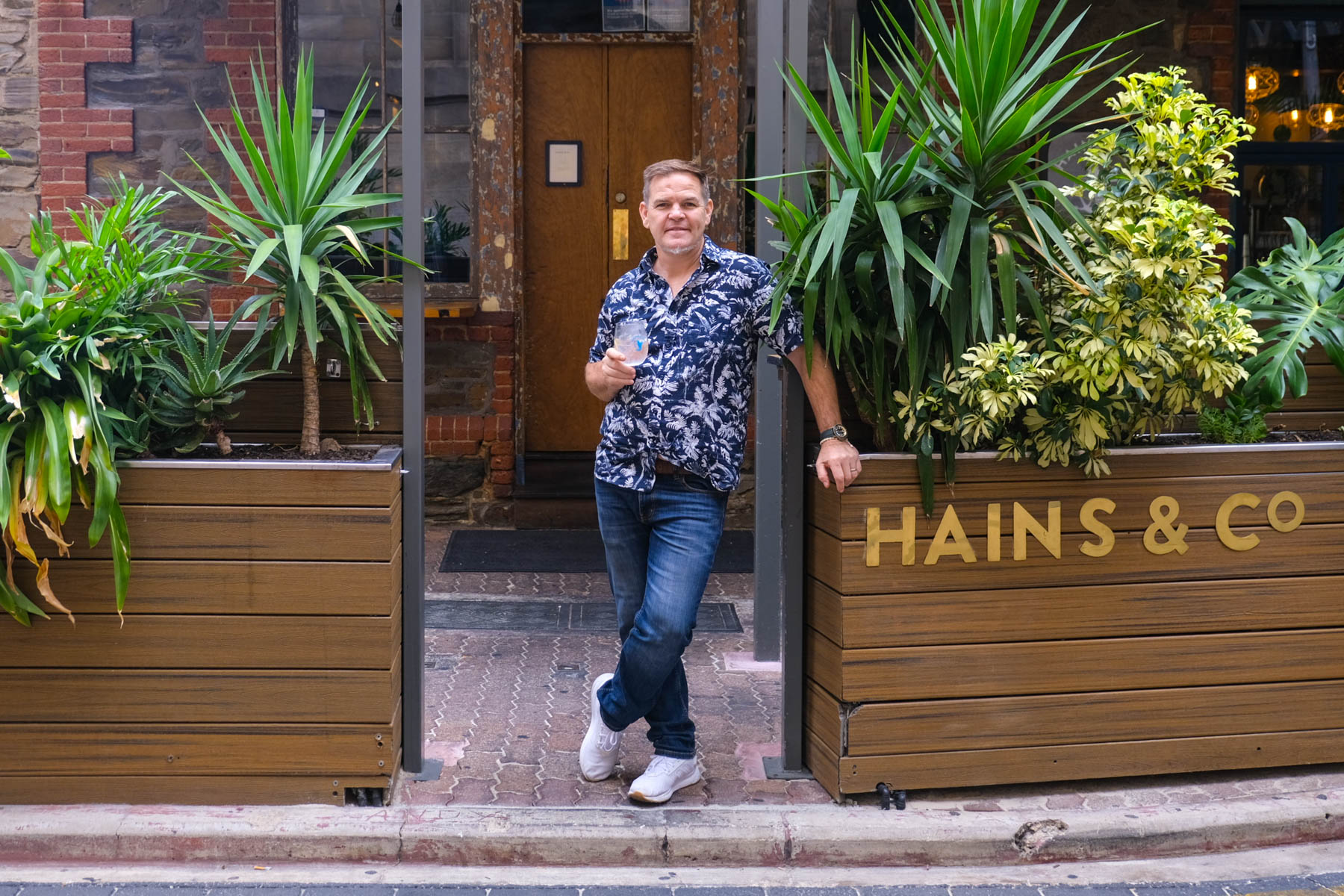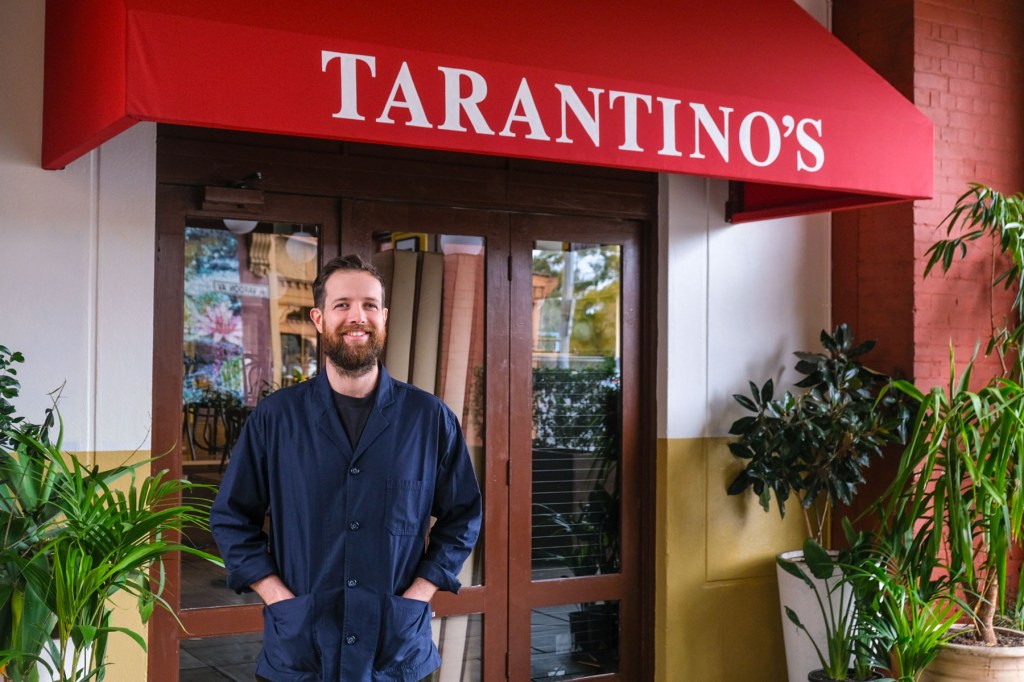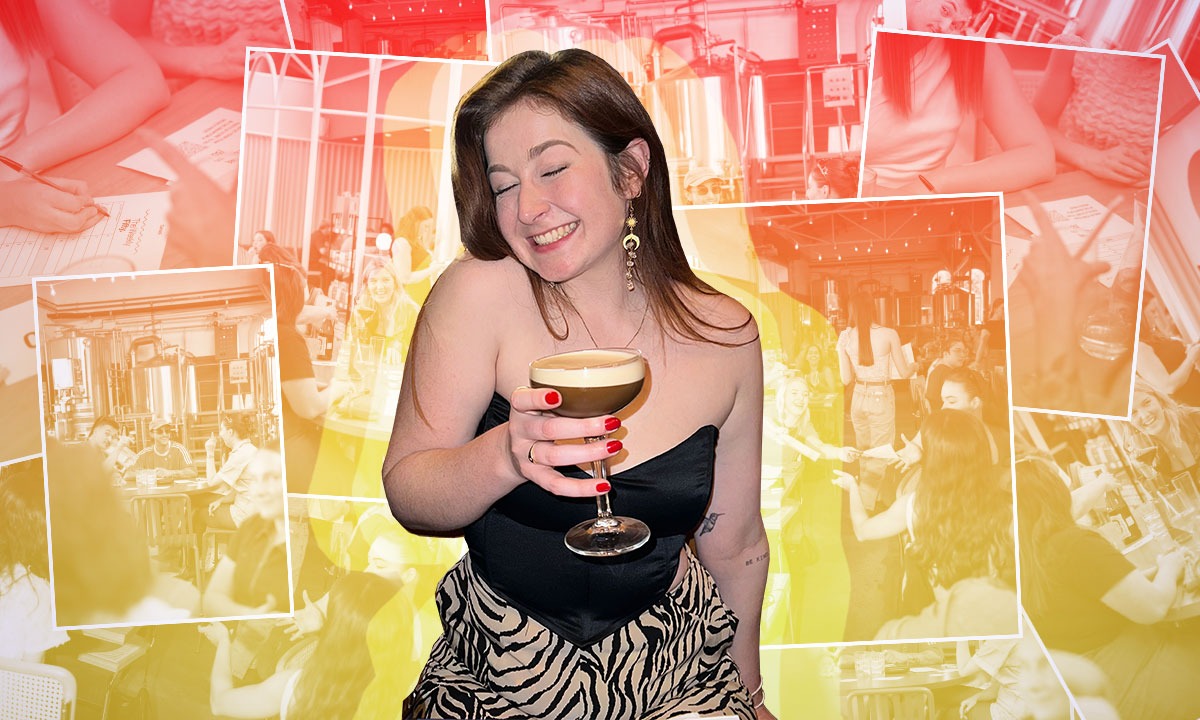How will we be dining in the future?

As part of CityMag‘s Blueprint edition, reporter Claudia Dichiera deep-dives into how Adelaide’s hospitality scene is overcoming the post-Covid lull.
Adelaide’s hospitality scene has gone through various eras in the last five years.
There was Covid – we were forced to stay inside, and ordering takeaway was equivalent to dining out. Next came the post-Covid boom: we started spending cash, though we were restricted in numbers and forced to our seats. Most recently, we entered the post-Covid lull. The cost-of-living crisis kicked in and people became more conservative with spending.
Five years on from the pandemic, we peer into a crystal ball to see what hospitality will look like in the future, and how dining habits will change in postcode 5000.
We will be happy to pay for quality

When we ask what consumer habits have changed, Hains & Co co-owner Marcus Motteram says diners “drink less but they drink better quality”.
“Covid was a really fascinating time – we had all these capacity restrictions, yet our turnover was fairly similar,” Hains & Co co-owner Marissa Galatis-Motteram adds.
“They’d been stuck at home all this time now, desperate to get out. They had all these savings and they couldn’t spend it during Covid, and they went hard,” Marcus says.
“In that time, they experimented. ‘Let’s try a more premium whiskey. Let’s have a more expensive cigar’. They’ve maintained those habits, so they’re drinking less but drinking better quality – that’s what we’re finding,” she says.
Marissa says customers are “going to more tasting events and educational events”.
“And they’re learning that a good tequila is made out of 100 per cent agave and you’re like, ‘right, that’s why I used to get so trashed and hungover back when I was 21 because I’m sure the tequila was not 100 per cent agave’,” she says.
You might like
People are also ordering different cocktails as “customer tastes” have changed.
“They’ve become far more discerning in what they drink. So back in 2015, vodka was it. Then slowly gin started,” Marissa says.
“And now, instead of people calling out ‘I’ll have a gin and tonic’, they’re calling their gin brands: ‘I will have a Never Never Pink Pepper gin with Fever-Tree Mediterranean Tonic’ instead of just a ‘gin and tonic’.”
There was once a time when “everyone used to just like sweet cocktails”. Now, negronis and whiskey sours are some of Hains & Co’s best sellers.
“I think people have moved away from that a little bit and they are looking for cocktails like a perfectly balanced margarita,” she says.
“You can go to a place and have a proper margarita, and you can go somewhere else and you get a margarita, and you’re like ‘this is so sweet. What have they put in there?’”
We will want an experience

The Big Easy Group’s Vardon Avenue spot has gone through three different iterations since they took the venue on board in 2019.
In 2023, they rebranded Yiasou George – a Greek restaurant – to House of George – a Mediterranean restaurant.
Then in June this year, it was transformed to Tarantino’s, a New York-style Italian restaurant representative of where they think “dining is going”. They noticed the House of George “concept itself was a little bit broken”.
Alex Bennett of The Big Easy Group says in the days of House of George, it delivered “really good food, a great experience, a lovely venue and the people who came loved it”.
“But the concept itself was…not quite right for the times: it was all big, communal food for large groups,” he says.
“We were seeing more and more that our group size was getting smaller, so a group of two couldn’t really come and have the House of George experience.”
Oliver Brown of The Big Easy Group says La Louisiane, another venue in the group’s portfolio, showcases the ethos of experience-based hospitality.
“We wanted to lean into that [at Tarantino’s], and La Louisiane has been a prime example of that transformative experience where you go down and you could be anywhere in the world,” Oliver says.
Subscribe for updates
“You have the snail shots, martinis on arrival and live music.”
Oliver thinks this experience-based hospitality model is a result of viral TikTok trends and the inevitable evolution of the dining landscape.
“I think people go to cafes for dates, [but] when I was younger, you’d only go to a bar,” Oliver says.
“And I think people are drinking a bit less and a bit more responsibly [which] means that people are choosing to come and spend their money on a nice dinner.
“We definitely see it at La Louisiane, you’ll have early 20-year-olds come and have a $250 dinner, and that’s their night. They’re not going out, whereas before, people would go out and they’d save that $250 for like, 18 Fire Truck [cocktails].”
Trends will emerge from our phones

Oliver says “the food element is actually getting more pronounced”, which is a result of the “TikTok effect”.
“People want to be out and people are eating a little bit more and showing the food they eat a little bit more,” he says.
Rylee Cooper, content creator and founder of social media pages Date Night Adelaide and The Hobby Club, sees different trends appearing on social media before landing on the plates of Adelaide diners.
“Obviously, we had the rise of matcha as the trending occurrence, and we had the rise of the Mont Blanc that was there for a bit. Food and drinks within the hospitality industry seem to follow very similar trends to those seen on social media,” Rylee says.
“But they come and they go really… but I can pretty much guarantee that all the stuff that occurs on social media and other countries in other places, if it’s covered enough, will eventually end up here, purely because people are talking about it and it’s trending.”
Rylee believes social media encourages “product development” and is a “really good place for inspiration” and “for businesses to come together and do something [interactive]”.
“The latest slew of jazz nights is probably the easiest way to see that conceptually. That was something that [emerged online] in Europe or maybe in America,” she says.
“We had one here, then we had two here. Now suddenly, there’s like 10 places that do jazz nights.”
Rylee says experience-based hospitality is the future.
“I mean, hospitality doesn’t mean food, right? Hospitality means the vibe at the place when you enter it. So absolutely: I think as much as good food is important…the vibe and the ambience and the service have always been a core factor as to what makes people think positive or negative things about it,” she says.
“I think in Adelaide, especially, we’ve seen a really good shift towards people wanting to create community and being much louder and much more intentional with it.
“When there’s so many options and so many varieties to pick from, you need to do something that’s going to make you stand out.”
This article first appeared in The Blueprint Edition of CityMag, released in spring of 2025.
Want to see more stories from InDaily SA in your Google search results?
- Click here to set InDaily SA as a preferred source.
- Tick the box next to "InDaily SA". That's it.





